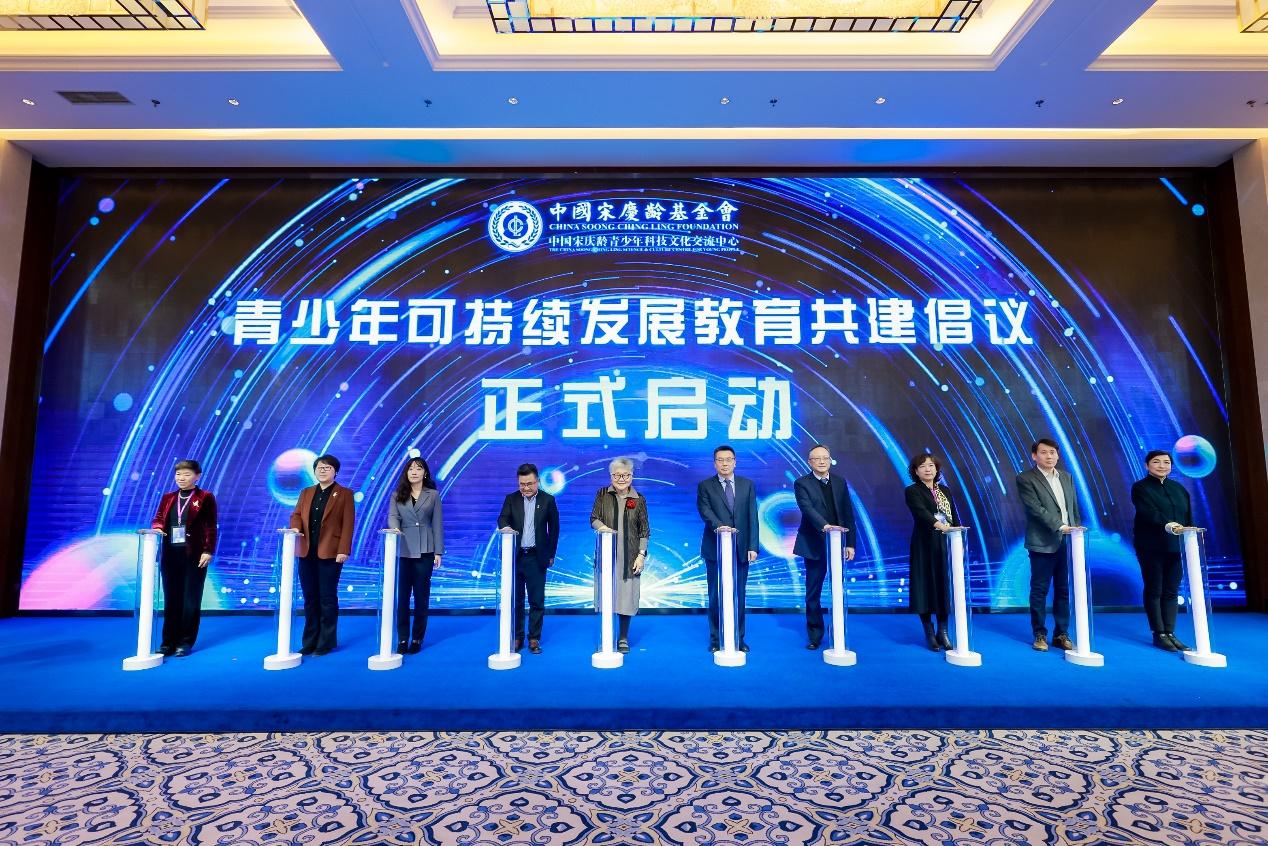
 0 Comment(s)
0 Comment(s) Print
Print E-mail China.org.cn, December 27, 2023
E-mail China.org.cn, December 27, 2023
Su Hongtao, deputy director of the China Soong Ching Ling Science & Culture Centre for Young People, delivers a speech at the opening ceremony of the Second International Forum on Young People's Education for Sustainable Development, Beijing, Dec. 25, 2023. [Photo provided to China.org.cn]
As the world grapples with complex challenges like climate change and inequality, the importance of youth education in sustainable development has become increasingly clear. In response, the Second International Forum on Young People's Education for Sustainable Development opened in Beijing on Dec. 25, gathering experts from China and abroad to share insights and innovative strategies on preparing the next generation for a greener future.
In his opening remarks, Su Hongtao, deputy director of the China Soong Ching Ling Science & Culture Centre for Young People (CSCLSCCYP), stressed the importance of education in sustainable development for young people. Recognizing the urgency of collective action, he emphasized the need for platforms like the forum to foster joint teaching, research, and extracurricular education initiatives. He stated his belief that this approach will cultivate "future-oriented youth with a global perspective and comprehensive quality," thereby shaping capable leaders for a sustainable tomorrow.
Zhang Weidong, assistant resident representative of the United Nations Development Programme in China, highlighted their partnership with the CSCLSCCYP in developing engaging courses on topics such as quality education, gender equality, and climate change. These courses, which use interactive games and discussions, aim to bridge the gap between knowledge and action, enabling young participants to understand and engage with the U.N.'s 17 Sustainable Development Goals (SDGs).
The forum featured several keynote presentations, panel discussions, and workshops.
In the keynote presentation session, Lu Shizhen, former Party secretary of the China Youth University of Political Studies (CYUPS) and honorary council member of the China Soong Ching Ling Foundation (CSCLF), said that rapid changes in society will inevitably affect the balance between material well-being and spiritual fulfillment. She noted that these changes raise major issues concerning the times, society, people's living conditions, and the pursuit of a meaningful life. This, she emphasized, poses a profound challenge to sustainable development and the quality education of young Chinese people.
She pointed out that the 20th National Congress of the Communist Party of China put forward the need to improve mechanisms for collaboration among schools, families, and society in education. This perspective places education in a broader social context and is a crucial guiding principle for Chinese-style modernization education.
Sun Fuchun, a professor in the Department of Computer Science and Technology at Tsinghua University, called for a renewed focus on creativity and innovation in education. He stated that these skills are essential for solving complex problems and positively impacting the world.
Zhang Yi, a senior teacher at the Beijing Academy of Educational Sciences, shared insights from her two decades of experience in educational practice. She emphasized that the growth needs of children should be the starting point and called on all parties to provide support for the sustainable development of children.
International collaboration for sustainability was a key theme, exemplified by Yulia V. Grinkevich, deputy executive director of the Andrey Melnichenko Foundation in Russia. She showcased their "Support Talented Youth" program, which identifies and nurtures talented Russian youth in STEM fields, empowering them to contribute to a sustainable future. Similarly, Alex Holmes from the British International Education Association highlighted their innovative competition, fostering collaboration and cultural exchange among diverse teams and equipping them with the skills to tackle global challenges together.
Zhao Jun, head of the CSCLSCCYP's Experiencing Center, showcased their programs prioritizing hands-on learning and experiential education. He said this approach allows young people to develop critical thinking, problem-solving, and collaboration skills essential for real-world impact in achieving the SDGs.

Guests launch the "Initiative for Co-construction of Youth Sustainable Development Education" at the opening ceremony of the Second International Forum on Young People's Education for Sustainable Development, Beijing, Dec. 25, 2023. [Photo provided to China.org.cn]
The opening ceremony also saw the launch of the "Initiative for Co-construction of Youth Sustainable Development Education," a collaborative effort that focuses on sharing educational resources, building diversified platforms, and developing a comprehensive education system for sustainable development.
Go to Forum >>0 Comment(s)